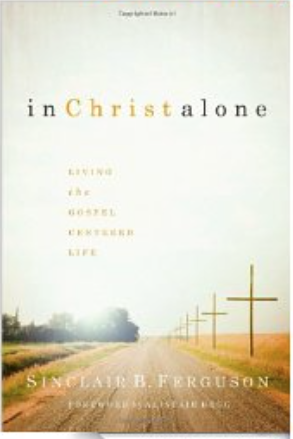
In an earlier post I highlighted Southern Baptist Theological Seminary professor Thomas R. Schreiner’s view that the Sabbath, and indeed all of the Ten Commandments, have been abrogated by Christ. You can view his exact words here. I countered Schreiner’s view with the Westminster Confession of Faith. I thought it would also be beneficial to show that modern day Biblical scholars still hold to the view that the Sabbath Day is still to be observed. Indeed, this is the orthodox and majority view. What follows is Sinclair B. Feguson’s view of the Sabbath.
“Since Augustine, Christians have recognized that the Bible describes human experience in a fourfold scheme: in creation, fall, redemption, and glory.
Many Christians are familiar with echoes of this in the Westminster Confession of Faith, chapter 9, or in Thomas Boston’s great book Human Nature in Its Fourfold State. It is no surprise, then, that the Sabbath, which was made for man, is experienced by him in four ways.
Innocence
In Creation, man was made as God’s image – intended “naturally,” as God’s child, to reflect the life and activity of his Father. Since his Father worked creatively for six days and rested on the seventh, Adam, like a son, was to copy Him. On the seventh day, they were to walk together in the garden. That was a time for Adam to listen to all the Father had to show and tell about the wonders of His creating work.
Thus, the Sabbath day was meant to be “Father’s Day” every week. It was “made” for Adam. It also had a hint of the future in it. The Father had finished His work, but Adam had not – not yet.
Fall
Adam fell. He ruined everything, including the Sabbath. Instead of walking with God, he hid from Him (Gen. 3:8). It was the Sabbath, Father’s Day, but God had to look for him!
This new context helps us to understand the significance of the fourth commandment in Exodus 20:8. It was given to fallen man – that is why it contains a “you shall not.” He was not to work, but to rest. Externally, that meant ceasing from his ordinary tasks in order to meet with God. Internally, it involved ceasing from all self-sufficiency in order to rest in God’s grace.
Salvation
What difference did the coming of Jesus make to the Sabbath day?
In Christ crucified and risen, we find eternal rest (Matt. 11:28-30) and we are restored to communion with God (see Matt. 11:27). The lost treasures of the Sabbath are restored. We rest in Christ from our labor of self-sufficiency and we have access to the Father (Eph. 2:18). As we meet with Him, He shows us Himself, His ways, His world, His purposes, His glory. And whatever was temporary about the Mosaic Sabbath is left behind as we experience the reality to which it pointed, namely, intimate communion with the risen Savior, free from the pressures of daily work. This is the Lord’s Day.
Glory
But we have not yet reached the goal. We still struggle to rest from the labors of the flesh; we still must “be diligent to enter that rest” (Heb. 4:11). That is why the weekly nature of the Sabbath continues as a reminder that we are not yet home with the Father. And since this rest is ours only through union with Christ in His death and resurrection, our struggles to refuse the old life and enjoy the new will continue until glory.
But one may ask, “How does this impact my Sundays as a Christian?”
For one thing, this view of the Sabbath helps us regulate the whole week. Sunday is “Father’s Day,” and we have an appointment to meet Him. The child who asks, “How short can the meeting be?” has a dysfunctional relationship problem – not an intellectual, theological problem. Something is amiss in his fellowship with God.
This view of the Lord’s Day also usually helps us deal in a non-legalistic way with questions that ask, “Is it OK to do ____ on Sunday since I don’t have any time to do it in the rest of the week?” If this is the way we phrase the question, the problem is not how we use Sunday, it is how we are misusing the rest of the week.
This view of the Lord’s Day also helps us see it as a foretaste of heaven. And it teaches us that if the worship, fellowship, ministry, and outreach of our churches do not give expression to that, something is seriously amiss.
Hebrews teaches us that eternal glory is a Sabbath rest. Every day, all day, will be “Father’s Day”! Thus, if here and now we learn the pleasures of a God-given weekly rhythm, it will no longer seem strange to us that the eternal glory can be described as a prolonged Sabbath.”
-Sinclair B. Feguson, In Christ Alone: Living the Gospel Centered Life, location 1915-1941 Kindle edition
“Blessed are those whose way is blameless, who walk in the law of the Lord!” (Psalm 119:1, ESV)
“You have commanded your precepts to be kept diligently. Oh that my ways may be steadfast in keeping your statutes! Then I shall not be put to shame, having my eyes fixed on all your commandments. I will praise you with an upright heart, when I learn your righteous rules. I will keep your statutes; do not utterly forsake me!” (Psalm 119:4-8, ESV)
